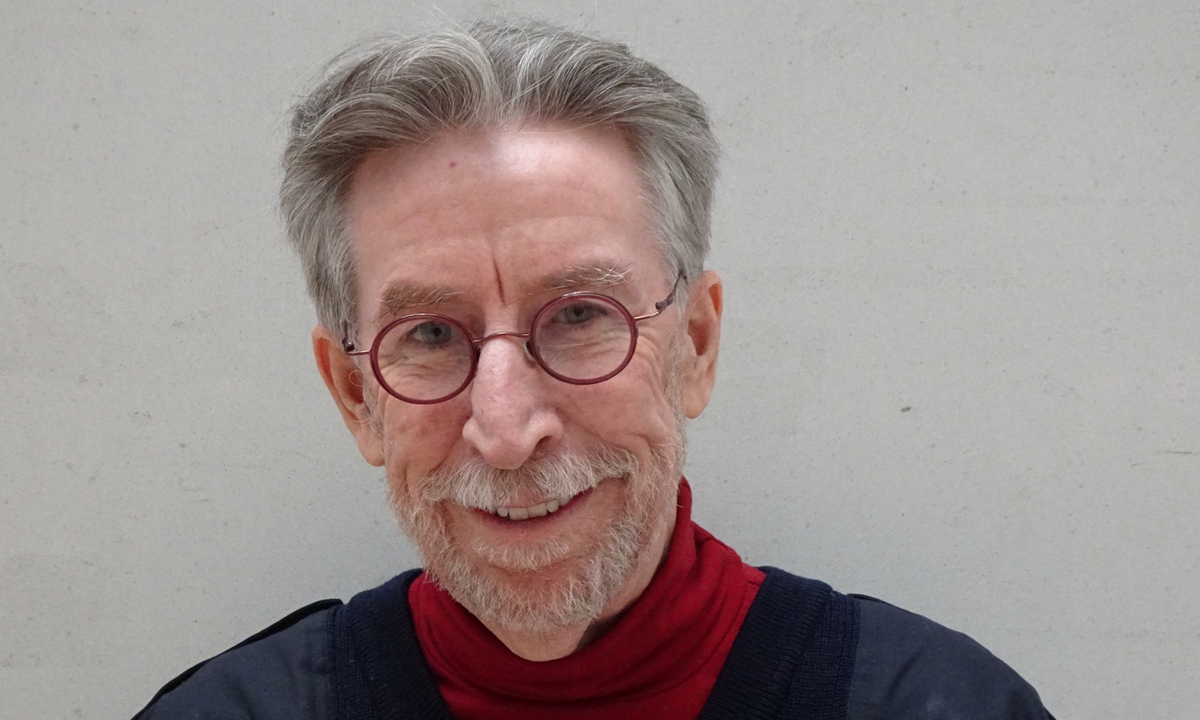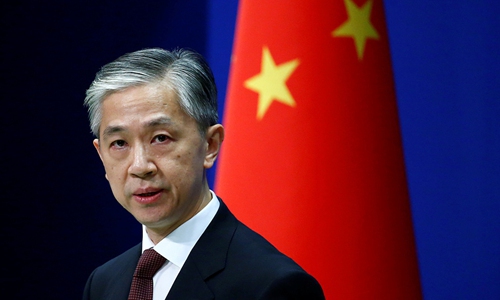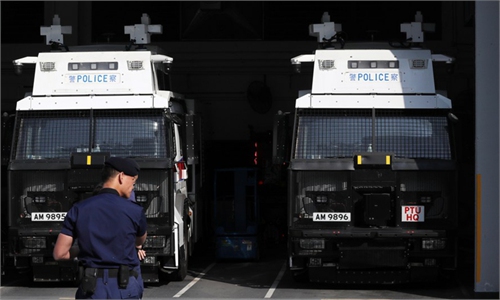
Photo: VCG
Editor's Note:
It has been a little more than a year since the national security law for Hong Kong was enacted. How is the current political atmosphere different from that time? How will Hong Kong affairs affect China's relations with the US-led West in the future? Global Times (GT) reporter Wang Wenwen talked to Richard Cullen (Cullen), a visiting professor at the Faculty of Law, Hong Kong University, on the impact of the law. He was previously a professor in the Department of Business Law and Taxation at Monash University in Melbourne, Australia.
GT: What is your observation on Hong Kong's situation after the national security law for Hong Kong was enacted one year ago? How is the current political atmosphere different from that time?
Cullen: Real stability has been returned, and it is being maintained. That doesn't guarantee that there won't be more destabilization. But it's like night and day compared to how it was in 2019. It's much more relaxed and stable. We're into the second year now, just the start of it. We'll have to see how it unfolds. But so far, it's a very radical change. There's no question about that. I would say that the impact has been quite focused. It is people who were involved in objecting to protesting and actively pushing the stabilization in Hong Kong in a number of cases.
The political atmosphere is interesting. The tension is still there. And some people obviously feel extremely strongly, like the man who tried to kill the policeman and then killed himself shortly after. But that is a small minority, small but agitated. One of the big changes is, when you look at the LegCo now, it's so "boring." Up until the election reforms and before all of the pan-democrats resigned, there were all kinds of stunts and nonsense going on day after day. And indeed, from October 2019, for about six months, LegCo barely functioned as a normal legislature at all.
Today the legislature is actually back to working again as a legislature.
GT: From the legal perspective, how does the law ensure Hong Kong's high degree of autonomy under the "one country, two systems" framework?
Cullen: You can't have the framework if you've got a constitutional order breakdown and really serious instability. The national security law, the first thing it does, is to protect basic constitutional stability. Now there's no question that it has introduced more restrictions, what people can say and do. Previously, it was left to people to use their own common sense to decide what to say to show impulse control and to make rational contributions to debate. So it is not cost-free. But broad stability is back. And without that, you can't maintain "one country, two systems." So these reforms have put the foundations, I think, once again, under "one country, two systems" in a radical way, but in an effective way.
The other reality is that more than ever China is the primary growth engine for the whole world. We are in China, and we are next door to the Greater Bay Area. When you add up those economic potential opportunities which are very great, many people would love to be in our place if they could get access to opportunities like that. We'll have to wait and see how things work out. This is a work in progress.
I'm hopeful that the coming years will see acceptance of these new changes, in particular, allowing Hong Kong to get back to work to solve many of its livelihood problems and also to take part more effectively in developments in the mainland. And "one country, two systems" will be the framework for doing that. We should then see enhanced benefits coming from our participation in developments under the current new Five-Year Plan that's unfolding.

Richard Cullen Photo: Courtesy of Richard Cullen
GT: With the national security law, do you think the interference of countries such as the US and the UK in Hong Kong affairs will be less and less? By your analysis, how will Hong Kong affairs affect China's relations with the US and the UK in the future?Cullen: I think criticism will continue. But I also believe that if the national security law continues to be used in a measured way - and not impulsively - and in a probably targeted way, then the intensity level of the criticism will measurably reduce.
Singapore has a far more drastic national security regime than we do in many ways. But you don't hear the US Congress going on day after day about how shocking the Singapore regime is.
So I think if the law continues to operate fairly in a measured way, then the atmosphere will tend to calm down. But certain people will still keep making a fuss over it. Joe Biden is worried above all about the mid-term elections next year. He feels that being soft on China will be used against the Democrats who hold a very thin majority in the Senate and only a modest majority in the House of Representatives.
As for the EU, fortunately, the parliament doesn't have final decision-making power covering relations with China and Hong Kong. It's legitimate for them to review those relationships and make recommendations. I hope that the executive authorities in the EU do not act to take matters excessively further than this.
With so much electoral politics now, more than ever, the influence of the web, social media is a pivotal. Electoral politics in the West increasingly involves making too often polarizing gestures to show what a good person I am. "I loathe the same people as you do; therefore, vote for me." It's a pity that this is so but it is the reality. So I think we'll have to put up with unwarranted criticisms and attacks on the national security law on a continuing basis. These uncompromising censures of that law are not based on real substance in my view. Providing the law continues to operate as I mentioned why I think the intensity of the criticism will tend to fade away and hopefully in about five years' time, the national security law will be looked on in much the same as the national security laws in Singapore that are not talked about intensely or very often.
GT: The phrase "a beautiful sight to behold" was previously used by US House Speaker Nancy Pelosi to describe the Hong Kong riots and violence two years ago. Early this year, violence was also staged in the US as pro-Trump rioters stormed Capitol Hill, and police violence in the US has always been an issue, while US politicians remained silent on these. What negative impact will the US double standards bring to its own governance?
Cullen: The US has been behaving like this now for decades. But it can't be doing any good for America. The problem is more specific now, I think, than ever before. What is an insurrection in the US is a beautiful sight to behold in Hong Kong. This is nonsense. Even Nancy Pelosi must realize this. But she's performing for a US audience: it is a political performance, quite frankly. It's hard to take these remarks seriously as thoughtful political comments.
I think this sort of rhetoric does undermine the US position. It's not going to make big changes rapidly. People like professor Joseph Nye have rightly talked about American soft power. He doesn't emphasize American hard power quite so much, but I believe he acknowledges that the soft power really sits on the foundation of hard power. Anyhow, I agree with him. Soft power has been very, very important over a long period of time. The increasingly insistent use of this kind of rhetoric, this kind of obviously tilted arguing, there is no question that will gradually undermine US soft power.



